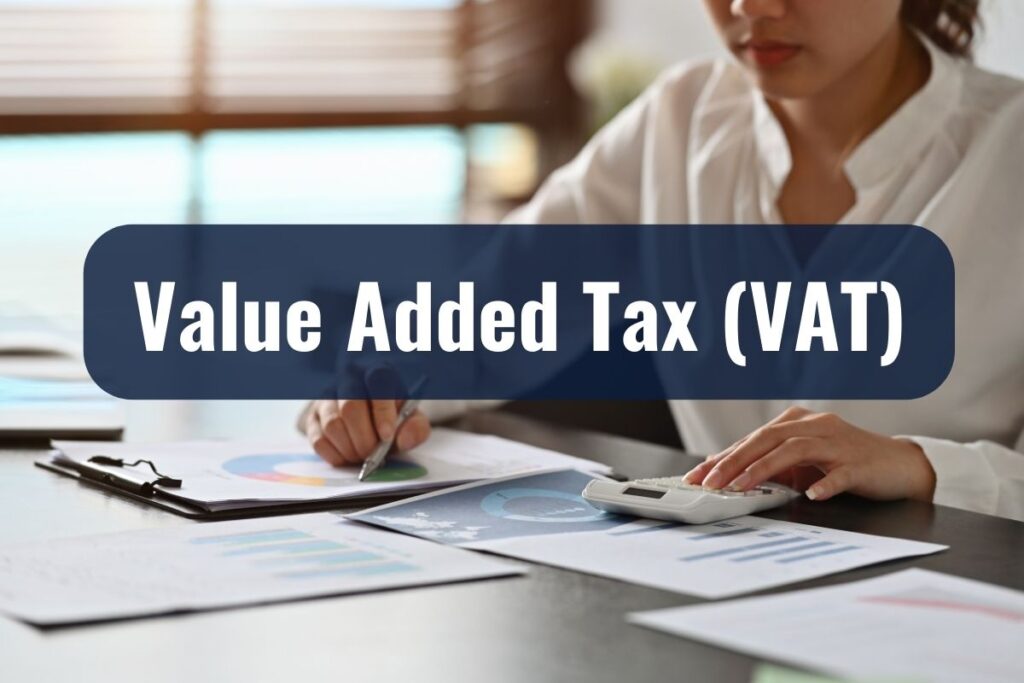Freelancers and self-employed individuals in the Netherlands face unique tax obligations that differ from those of traditional employees. Understanding these obligations is crucial for managing your finances effectively and avoiding potential legal issues.
This guide aims to provide a clear and concise overview of the taxes for freelancers and self-employed workers in the Netherlands, including income tax and VAT (Value Added Tax), the process of registering your business, and other pertinent tax considerations. With a focus on actionable information, this guide serves as a resource to help you fulfill your tax responsibilities efficiently, regardless of your familiarity with the Dutch tax system.
KEY TAKEAWAYS
- Freelancers must understand income tax and VAT obligations in the Netherlands.
- Business registration with the KVK and obtaining a VAT number are essential first steps.
- Deductible expenses and specific allowances can significantly reduce tax liabilities.
- Proactive management of social security and pension planning is crucial for financial security.
- Utilizing resources and seeking professional assistance can streamline tax management and financial planning.
- Regular updates on tax laws and regulations are essential to remain compliant and optimized.
Understanding the Dutch Tax System for Freelancers
In the Netherlands, freelancers and self-employed workers are often referred to as ZZP’ers (zelfstandigen zonder personeel), which translates to “independents without employees”. As a ZZP’er, you’re essentially running a one-person business, making you subject to specific tax regulations that differ from those of employees.
The Dutch tax system for freelancers revolves mainly around two types of taxes: income tax (Inkomstenbelasting) and Value Added Tax (VAT or BTW in Dutch). Understanding both is essential for fulfilling your tax obligations and optimizing your financial planning.
Income Tax (Inkomstenbelasting)
Freelancers are required to pay income tax on their profits. The calculation of this tax considers your business income minus allowable expenses and deductions. The system uses progressive tax rates, meaning the tax rate increases as your income grows. Freelancers file an annual income tax return where these elements are reported and calculated.
Value Added Tax (VAT/BTW)
Most goods and services sold in the Netherlands are subject to VAT. As a freelancer, you generally need to charge VAT on your invoices and periodically (usually quarterly) report and pay this to the Dutch Tax and Customs Administration (Belastingdienst). The standard VAT rate is 21%, but reduced rates of 9% or exemptions may apply to certain goods and services.
Registration with the Dutch Tax and Customs Administration is a critical first step upon starting your freelance business. This registration process involves obtaining a VAT number, which you must include on all invoices. Additionally, it’s essential to keep accurate and detailed records of all transactions, as these are necessary for your VAT returns and income tax filings.
Registering Your Business

Before embarking on your freelance journey in the Netherlands, registering your business is a critical first step. This process legitimizes your operations and is necessary for tax purposes. Here’s what you need to know:
Dutch Chamber of Commerce (KVK) Registration
All freelancers must register their business with the Dutch Chamber of Commerce (Kamer van Koophandel, KVK). The KVK registration process involves providing personal details, choosing a business name, and describing your business activities. Upon completion, you receive a KVK number, marking your official entry into the Dutch business registry.
Obtaining a VAT Number
During the KVK registration, you’ll also be registered with the Dutch Tax and Customs Administration and assigned a VAT (BTW) number. This number is crucial for all your business invoices and tax-related activities. Ensure this number is prominently displayed on all invoices you issue.
Choosing the Right Legal Structure
Selecting an appropriate legal structure for your business is essential. Most freelancers opt for a sole proprietorship (eenmanszaak) due to its simplicity and ease of setup. This structure links the business directly to you as an individual, simplifying tax filings. However, other structures, such as a private limited company (BV), may offer financial or legal benefits depending on your situation.
Opening a Business Bank Account
While not a legal requirement for freelancers, opening a business bank account can help you manage your finances more efficiently. It separates your personal and business transactions, simplifying bookkeeping and tax preparation.
Compliance with Local Regulations
Certain professions may require additional permits or adherence to specific regulations. Verify if your freelance activity falls under such categories and ensure compliance to avoid penalties.
Income Taxes for Freelancers and Self-Employed Workers in the Netherlands
Income tax is a significant consideration for freelancers in the Netherlands, applied to the profit you make from your business activities. Understanding how this tax works and preparing for it can greatly impact your financial health.
Taxable Income Calculation
Your taxable income as a freelancer is determined by subtracting allowable business expenses from your gross income. These expenses include costs directly related to your business operations, such as office supplies, marketing expenses, and travel costs.
Tax Brackets and Rates
The Netherlands employs a progressive tax rate system for income tax. This means the rate at which you are taxed increases as your income does. There are different brackets, each with its rate, which are updated annually. Familiarize yourself with the current rates to estimate your tax obligations accurately.
Filing an Income Tax Return
Freelancers are required to file an annual income tax return. This process involves reporting your business income, expenses, and any applicable deductions. The deadline for filing is typically April 1st of the year following the tax year. However, if you use a tax advisor, this deadline can be extended.
Necessary Documents
Preparation is key when it comes to filing your tax return. Essential documents include a detailed record of all business transactions, invoices, bank statements, and a list of expenses. Keeping these documents organized throughout the year will streamline the filing process.
Utilizing Deductions
Various deductions can reduce your taxable income. These include the self-employed deduction (zelfstandigenaftrek), startup deduction (startersaftrek), and small business profit exemption (MKB-winstvrijstelling). Each has specific eligibility criteria, so review these carefully to maximize your benefits.
Provisional Tax Assessment
To manage your cash flow better and avoid a large tax bill at the end of the year, consider applying for a provisional tax assessment. This allows you to pay your estimated income tax in monthly or quarterly installments throughout the year.
Value Added Tax (VAT)

For freelancers in the Netherlands, understanding and managing Value Added Tax (VAT) is a key part of financial operations. VAT is a tax on consumer spending and is applicable to most goods and services provided by businesses in the Netherlands.
| Item | Standard Rate | Reduced Rate | Exempt | Notes |
| General Goods & Services | 21% | – | – | Most goods and services |
| Food, Books, Medicine | – | 9% | – | Reduced rate applies |
| Education, Healthcare | – | – | Yes | Exempt from VAT |
| Small Business Scheme Eligibility | – | – | Yes | Conditions apply |
Charging VAT
As a freelancer, you are generally required to charge VAT on the goods or services you provide. The standard VAT rate is 21%, but a reduced rate of 9% applies to certain goods and services, such as food, books, and medicine. Some services, like education and healthcare, may be exempt from VAT. It’s crucial to apply the correct VAT rate to avoid discrepancies in your tax filings.
VAT Returns
Freelancers must file VAT returns periodically, typically every quarter. This involves reporting the amount of VAT you’ve charged to your clients and the VAT you’ve paid on your own business purchases. The difference between these amounts is what you’ll either pay to or reclaim from the Dutch Tax and Customs Administration.
Administration
Keeping meticulous records is essential for managing VAT. This includes all invoices issued and received, as well as receipts for business expenses. These documents must clearly state the VAT amount and serve as the basis for your VAT returns.
Small Business Scheme (Kleineondernemersregeling, KOR)
Freelancers with a low VAT liability may qualify for the Small Business Scheme, which offers simplifications and exemptions from VAT. If your VAT payable, after deductions, does not exceed a certain threshold, you might be exempt from charging VAT to your clients. However, this also means you cannot reclaim VAT on your business expenses.
Digital Tools and Software
To streamline VAT management, consider using digital tools and software designed for tax administration. These can automate much of the process, from generating compliant invoices to calculating your VAT return.
Deductibles and Allowances
A critical aspect of tax planning for freelancers in the Netherlands involves understanding which expenses are deductible from your taxable income, as well as the allowances you’re entitled to. This knowledge can significantly reduce your tax liability, leaving more income at your disposal.
Common Deductible Expenses
- Business Expenses: Costs directly related to the operation of your freelance business, such as office supplies, software subscriptions, and business-related travel, are fully deductible.
- Home Office Expenses: If you work from a home office that meets specific criteria set by the Dutch Tax and Customs Administration, a portion of your housing costs (rent, utilities, maintenance) can be deductible.
- Equipment and Assets: Purchases of equipment or assets used for your business, like computers or professional tools, can be depreciated over their useful life, offering tax deductions over several years.
- Professional Development: Costs for training, courses, or workshops aimed at improving your business skills or expertise are also deductible.
Specific Tax Allowances for Freelancers
- Self-employed Allowance (Zelfstandigenaftrek): A significant deduction available to freelancers who qualify as self-employed for tax purposes and meet the hour criterion.
- Startup Deduction (Startersaftrek): An additional deduction for those in the initial years of their freelance business, enhancing the self-employed allowance.
- Small Business Scheme (Kleineondernemersregeling, KOR): As mentioned under VAT, this scheme can also affect your income tax through VAT exemptions.
- Investment Allowance (Investeringsaftrek): Provides deductions for certain business investments, encouraging freelancers to invest in their operations.
Record-Keeping
Maintaining detailed records of all expenses and ensuring they are strictly business-related is crucial. In case of an audit, having organized and accessible documentation will support your deductions.
Social Security Contributions

For freelancers in the Netherlands, navigating social security contributions is an essential aspect of financial and personal security planning. Unlike traditional employees whose contributions are partly managed by their employers, freelancers are responsible for managing their own social security obligations.
General Contributions
Freelancers make contributions towards national insurance schemes through their income tax payments. These schemes include basic provisions for old age pension (AOW), survivor benefits (ANW), and long-term care (WLZ). The contribution rates are integrated into the income tax system, meaning they are calculated as a percentage of your taxable income.
Voluntary Insurance
Apart from the mandatory national insurance, freelancers have the option to voluntarily contribute to additional social security schemes, such as disability insurance (WIA) and unemployment insurance (WW). These insurances offer protection against loss of income due to disability or unemployment but come with additional costs.
Health Insurance
All residents in the Netherlands must have health insurance (zorgverzekering). Freelancers are required to arrange and pay for their own health insurance. While not directly a social security contribution, it is a mandatory expense closely related to personal welfare. Health insurance premiums vary by provider, and freelancers may also be eligible for healthcare allowance (zorgtoeslag) depending on their income.
Pension Contributions
While the AOW provides a basic state pension, freelancers are encouraged to make additional arrangements for their retirement. This can include private pension schemes or investing in a pension fund specifically designed for freelancers. Planning for retirement is crucial, as the AOW pension may not fully cover your living expenses in retirement.
Considerations and Planning
- Evaluate your need for voluntary insurances based on your financial situation and risk tolerance.
- Regularly review your health insurance plan to ensure it meets your needs and explore eligibility for healthcare allowance.
- Start planning for retirement early, considering both the state pension and additional savings or pension contributions.
Pension Planning
Effective pension planning is crucial for freelancers in the Netherlands, given the absence of employer-sponsored pension schemes. Taking charge of your retirement planning ensures financial stability in later life, allowing for a seamless transition from working years to retirement.
State Pension (AOW)
The foundation of retirement income in the Netherlands is the AOW pension, provided by the government to all residents from a certain age. While this pension offers a basic level of income, it often falls short of maintaining the standard of living you might be used to as a working professional.
Private Pension Plans
To supplement the AOW pension, freelancers are encouraged to invest in private pension plans. Several options are available, including:
- Bank savings products (banksparen): These offer a tax-friendly way to save for retirement, with funds locked in until retirement age.
- Insurance products: Life insurance plans designed for retirement saving can also be a good option, offering both a savings component and life insurance.
- Investment accounts: Investing in a diversified portfolio can provide growth over time, although it comes with higher risk compared to savings products.
Pension Funds for Freelancers
Some sectors offer specific pension funds for freelancers, providing a structured way to save for retirement with benefits similar to those of employer-sponsored pension schemes. Investigating whether your sector offers such options can be worthwhile.
Tax Considerations
Contributions to approved pension schemes are often tax-deductible, reducing your taxable income. Additionally, the investment growth in these pensions is tax-deferred, offering a tax-efficient way to build your retirement nest egg.
Regular Reviews and Adjustments
As your freelance business evolves, so too will your financial situation and retirement needs. Regularly reviewing your pension plans and savings goals ensures that your retirement planning remains aligned with your long-term objectives.
Additional Resources
- Accounting Software: Utilize accounting software tailored for freelancers to track income, expenses, and prepare financial statements. Features often include invoice creation, VAT calculation, and tax return preparation.
- Tax Administration Tools: The Dutch Tax and Customs Administration (Belastingdienst) offers digital services and tools for filing taxes and managing your registrations.
- Tax Advisors: A tax advisor specializing in freelance businesses can provide personalized advice, help optimize your tax situation, and ensure compliance with Dutch tax laws.
- Bookkeepers: For day-to-day financial management, a bookkeeper can maintain your accounts, manage invoices, and prepare the necessary documentation for tax filings.
- Dutch Tax and Customs Administration (Belastingdienst): The primary source for tax regulations, forms, and guidelines. Their website offers comprehensive information on all aspects of taxation and business registration in the Netherlands.
- Chamber of Commerce (KVK): The KVK provides information on starting a business, legal structures, and networking opportunities. They also organize seminars and workshops beneficial for new freelancers.
- Professional Associations: Joining a professional association in your field can provide networking opportunities, industry-specific advice, and access to resources tailored to your profession.
Participating in online communities and forums dedicated to freelancers in the Netherlands can offer peer support, advice, and experiences on handling various aspects of freelance life.
Look for webinars, courses, and workshops focused on entrepreneurship, tax management, and financial planning for freelancers. These can be invaluable in gaining knowledge and skills to manage your business effectively.